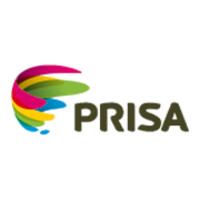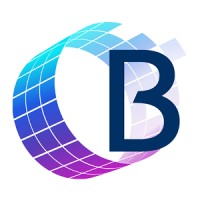
Glamour Company Cyber Security Posture
glamour.comGlamour is a women's magazine published by Condé Nast Publications. Founded in 1939 in the United States, it was originally called Glamour of Hollywood. Glamour covers the stories women want—and need—to read right now, with high-quality journalism and an authentic, accessible point of view. Here, you’ll find up-to-the-instant coverage of the issues affecting women’s lives—from politics to #MeToo; fashion that is attainable; beauty—both inside and out—and a holistic approach to wellness; sex and relationships; as well as the TV, movies, books, and pop culture you’re obsessed with. Local editions are now published in numerous countries including the United Kingdom, United States, France, Italy, Germany, Spain, Russia, Greece, Poland, South Africa, Brazil, Hungary, Romania, Bulgaria, Netherlands, Mexico. In most cases it is a monthly publication.
Glamour Company Details
glamour
10,001+ employees
0
512
Media Production
glamour.com
Scan still pending
GLA_4708508
In-progress
Between 900 and 1000
This score is AI-generated and less favored by cyber insurers, who prefer the TPRM score.
 Glamour Global Score
Glamour Global Score.png)

Glamour Company Scoring based on AI Models
| Model Name | Date | Description | Current Score Difference | Score |
|---|---|---|---|---|
| AVERAGE-Industry | 03-12-2025 | This score represents the average cybersecurity rating of companies already scanned within the same industry. It provides a benchmark to compare an individual company's security posture against its industry peers. | N/A | Between 900 and 1000 |
Glamour Company Cyber Security News & History
| Entity | Type | Severity | Impact | Seen | Url ID | Details | View |
|---|
Glamour Company Subsidiaries

Glamour is a women's magazine published by Condé Nast Publications. Founded in 1939 in the United States, it was originally called Glamour of Hollywood. Glamour covers the stories women want—and need—to read right now, with high-quality journalism and an authentic, accessible point of view. Here, you’ll find up-to-the-instant coverage of the issues affecting women’s lives—from politics to #MeToo; fashion that is attainable; beauty—both inside and out—and a holistic approach to wellness; sex and relationships; as well as the TV, movies, books, and pop culture you’re obsessed with. Local editions are now published in numerous countries including the United Kingdom, United States, France, Italy, Germany, Spain, Russia, Greece, Poland, South Africa, Brazil, Hungary, Romania, Bulgaria, Netherlands, Mexico. In most cases it is a monthly publication.
Access Data Using Our API

Get company history
.png)
Glamour Cyber Security News
Glamour, gripes as celebs head to Venice for exclusive Bezos wedding
None
Bots are overwhelming websites with their hunger for AI data
The surge in bots that gather data for AI training, the report says, often went unnoticed until it became so bad that it knocked online ...
Securing the Legacy: How AT&T's Dynamic Defense Protects the Dallas Cowboys
The collaboration between AT&T and the Cowboys exemplifies proactive, forward-thinking security solutions. This working relationship not only ...
Gmail, Outlook and Apple users urged to watch out for this new email scam: Cybersecurity experts sound alarm
AI tools are being maliciously used to send “hyper-personalized emails” that are so sophisticated victims can't identify that they're fraudulent.
Internet Archive hack a signal that cultural institutions are cyber criminals' newest target
Experts say cybersecurity education, training, and awareness are essential as cultural institutions have increasingly become targets for ...
Ghibli Glam or Privacy Scam? How AI is Stealing Your Face Without You Knowing
Social media platforms are currently flooded with Ghibli-style AI-generated images, thanks to OpenAI's ChatGPT-4o.
Meet Shaleenah Marie: Head of Learning and Development for Siemens Sub-Saharan Africa and the project lead for the UN Women African Girls Can Code & Siemens EmpowerHER Initiative
Shaleenah: The core objective is to empower young women across Africa with the digital literacy, technical skills, and work-readiness training ...
WestJet hit with 'cybersecurity incident,' says operations running safely
WestJet says a "cybersecurity incident" is affecting access to some of its servers and software systems. The Calgary-based airline says its ...
How One Woman Broke Through the Cybersecurity Ceiling
As news of election interference swirled and social media companies faced fierce scrutiny in the months following the 2016 election, Capt. Shaelyn Layton—then a ...

Glamour Similar Companies

Freelancer
A freelancer or freelance worker is a term commonly used for a person who is self-employed and is not necessarily committed to a particular employer long-term. Freelance workers are sometimes represented by a company or a temporary agency that resells freelance labor to clients; others work independ

Hubert Burda Media
With around 10,500 employees and over 500 brands world-wide, Hubert Burda Media is one of Germany’s largest technology and media companies. We create media with people, for people. We use our social relevance to make a difference and offer our employees the freedom to be creative and to invent n

PRISA
PRISA es la compañía líder en la creación y distribución de contenidos culturales, educativos, de información y entretenimiento en los mercados de habla española y portuguesa. Presente en 24 países, PRISA llega a millones de personas a través de sus marcas globales El País, LOS40, Santill

Bertelsmann SE & Co. KGaA
Bertelsmann is a media, services and education company with more than 80,000 employees that operates in about 50 countries around the world. It includes the entertainment group RTL Group, the trade book publisher Penguin Random House, the music company BMG, the service provider Arvato Group, Bertels

PT Global Mediacom
Southeast Asia’s Largest and Most Integrated Media Group Indonesia’s leading integrated media company, PT Global Mediacom Tbk holds the country’s most extensive multi-platform media portfolio. The Company owns and operates 4 National Free-To-Air (FTA) Television, the country’s largest content pro

BBC
Blackburn Cathedral, as a cathedral of the Church of England, is the Mother Church of the Diocese of Blackburn and the seat of the Bishop of Blackburn. In addition to holding religious services each and every day of the year, many of which showcase our final musical tradition, and pursuing a vigor

Frequently Asked Questions
Explore insights on cybersecurity incidents, risk posture, and Rankiteo's assessments.
Glamour CyberSecurity History Information
How many cyber incidents has Glamour faced?
Total Incidents: According to Rankiteo, Glamour has faced 0 incidents in the past.
What types of cybersecurity incidents have occurred at Glamour?
Incident Types: The types of cybersecurity incidents that have occurred include .
Incident Details
What are the most common types of attacks the company has faced?
Additional Questions
What Do We Measure?
















Every week, Rankiteo analyzes billions of signals to give organizations a sharper, faster view of emerging risks. With deeper, more actionable intelligence at their fingertips, security teams can outpace threat actors, respond instantly to Zero-Day attacks, and dramatically shrink their risk exposure window.
These are some of the factors we use to calculate the overall score:
Identify exposed access points, detect misconfigured SSL certificates, and uncover vulnerabilities across the network infrastructure.
Gain visibility into the software components used within an organization to detect vulnerabilities, manage risk, and ensure supply chain security.
Monitor and manage all IT assets and their configurations to ensure accurate, real-time visibility across the company's technology environment.
Leverage real-time insights on active threats, malware campaigns, and emerging vulnerabilities to proactively defend against evolving cyberattacks.




